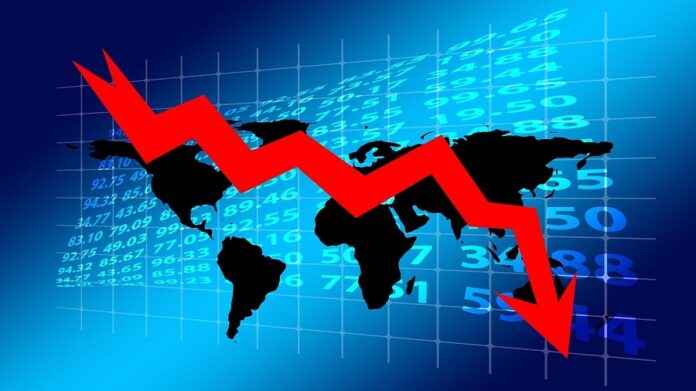Tina Ndi
In the fifteen years to 2015, the Nigerian economy grew rapidly and became many times larger. Since then economic growth has continued at a more modest rate. Despite this huge economic growth, the living standards of most people have fallen since 2000, especially over the last couple of years.
The prosperity for the few continues. The top five banks in Nigeria – First, UBA, GT Bank, Access and Zenith Bank increased their pre-tax profits by 60% in 2024. Dangote built one of the world’s largest oil refineries. The Dangote Cement plant in Obajana, Kogi, is the largest in Sub-Saharan Africa. The sugar refining factory in Numan, Adamawa State, is also the largest in Africa. Other new factories in Nigeria include: Obi Cubana’s tricycle assembly plant in Lagos and Avatar Energy’s lithium plant in Nasarawa State.
In contrast, the World Bank projects that Nigeria’s poverty rate will increase by nearly four percentage points by 2027. They also say that 106 million Nigerians currently live in poverty, being 15% of the world’s extremely poor population. In 2022, the National Bureau of Statistics said that 63% of Nigeria’s population was multidimensionally poor, a huge increase on just over 40% in 2019. In the last three years poverty has increased massively due to the increase in inflation from ending the petrol subsidy and the huge devaluation of the naira.
Growth in the last decade
Over the last 10 years the economy of Nigeria has grown by nearly 20% in real terms (that is taking into account inflation). This is an average growth of 1.6% a year. This is the same as the European Union and more than Britain. This is not great and less than population growth, so the per capita GDP fell slightly over the last decade. But over the four years since 2020, the economy has grown by more than 3% a year. This is higher than population growth of just over 2% a year over the last four years.
Our poverty is not due to slow economic growth (the size of the cake). It is due to the fact that the share going to salaries has fallen (generally also true across the world). We need more action from the trade unions to ensure that our share of the cake is increased.
Chinese economic growth averaged nearly 7% over the last decade.
US real GDP growth less than 2% over the last decade.
| Year | Per cent real GDP growth in 2010 naira |
| 2025 (World Bank estimate) | 3.6 |
| 2024 | 3.4 |
| 2023 | 2.74 |
| 2022 | 3.1 |
| 2021 | 3.4 |
| 2020 | -1.92 (COVID) |
| 2019 | 2.27 |
| 2018 | 1.93 |
| 2017 | 0.82 |
| 2016 | -1.58 (oil price fall) |
| 2015 | 2.27 |
The price of crude oil dropped significantly in 2016 to less than $30. Key factors included increased shale oil production in the US, OPEC’s refusal to curb production, and a slowdown in global economic growth, especially in China.
These figures are available from quarterly reports by the National Bureau of Statistics –
https://www.nigerianstat.gov.ng/elibrary?queries=GDP
They are usefully summarised here:
Massive growth to 2015
In the period 2000-2015 the Nigerian economy grew at a real annual rate of around 7%. It also grew every year from 1995 to 2015. As a result, the Nigerian economy was nearly three time larger in 2015 than it had been in 2000. This is extremely high economic growth and comparable with China’s rate for the same period of 10% a year. In comparison, the EU, US, UK and South Africa all grew at only 2% annually at that time.
The fastest period of economic growth for the British economy was during the post-1945 period. The fastest growth was in the 1960s when it grew at 3.5% a year over the decade. This was only half the rate the Nigerian economy achieved in the first 15 years of this millennium.
This very rapid growth for the Nigerian economy did not translate in to improved living standards for most Nigerians. The minimum wage as a per centage of the per capita GDP fell from almost three quarters in 1998 to less than 10% now. The following table shows further details:
| YEAR | MINIMUM WAGE – naira | MINIMUM WAGE – $ | PER CAPITA GDP (PPP current $) | Minimum Wage as % of Per Capita GDP |
| 1998 | 3,000 | 136 | 2,204 | 74 |
| 2001 | 7,500 | 87 | 2,419 | 43 |
| 2011 | 18,000 | 122 | 4,844 | 30 |
| 2019 | 30,000 | 85 | 5,525 | 18 |
| 2024 | 70,000 | 44 | 6318 | 8 |
Conclusions
If we are to change this situation, then we need robust action from our trade unions. We can all make a difference. We can encourage all members be more active in our trade unions and organise resolute action until victory.
For more information on economic growth and development in Nigeria see:
https://socialistlabour.com.ng/we-are-poor-people-living-in-a-resource-rich-nation/
And: https://socialistlabour.com.ng/abolition-of-all-forms-of-poverty-in-nigeria-whose-task/
For details of economic growth across sub-Saharan Africa over the last few decades see:
https://ivavalleybooks.com/2020/11/06/post-independence-growth-the-lost-decades-and-africa-rising/






